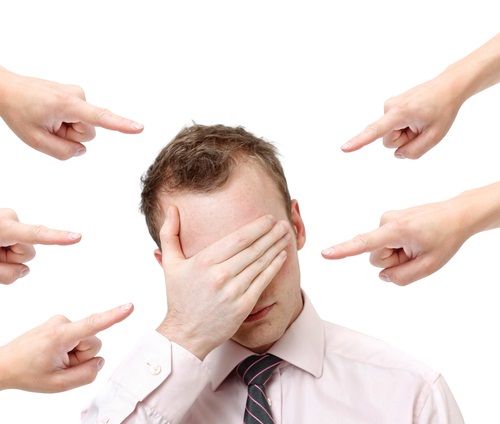Guilty Feelings May Lead to Ethical Decisions

If you tend to anticipate feelings of guilt, you might behave more ethically, a new study suggests.
In several experiments, researchers led by psychologist Taya R. Cohen of Carnegie Mellon University measured over 270 participants' guilt proneness. Being guilt prone is not the same as feeling guilty after doing something wrong. Rather, people who have high guilt proneness actually anticipate feeling guilty before they commit a transgression and they tend to do the right thing even when no one's watching.
The researchers found that participants with higher levels of guilt proneness were less likely to make unethical business decisions, lie for monetary gain or cheat during negotiations.
For example, in one part of the study, a group of 153 adult participants were faced with six dilemmas. In one scenario, they had to decide whether they would advise their company to exploit a legal loophole to drill for oil and gas in a country where it is illegal to do so because of human rights violations. They would get a large promotion and reap big profits for their company if they took advantage of the loophole. While 41 percent of participants low in guilt proneness said they would probably or definitely exploit the loophole, only 25 percent of those with a high level of guilt proneness said the same.
In other experiments, the researchers also found that those who were more guilt-prone were less likely to show up to work late without permission, steal office supplies and be rude to clients.
About 30 to 40 percent of the participants the researchers surveyed were low in guilt proneness and 30 to 40 percent were high in guilt proneness. Women were more likely than men to be guilt prone, as were older adults compared to their younger counterparts, the authors said.
The study was published this month in the journal Current Directions in Psychological Science and its authors said the guilt-proneness scale they used has the potential to be "an important measurement tool for predicting which individuals are likely to behave unethically in their social interactions inside and outside the workplace."
Get the world’s most fascinating discoveries delivered straight to your inbox.
They said additional research might be needed to determine whether the scale would be useful in high-stakes settings such as hiring new employees.
Follow LiveScience on Twitter @livescience. We're also on Facebook & Google+.



